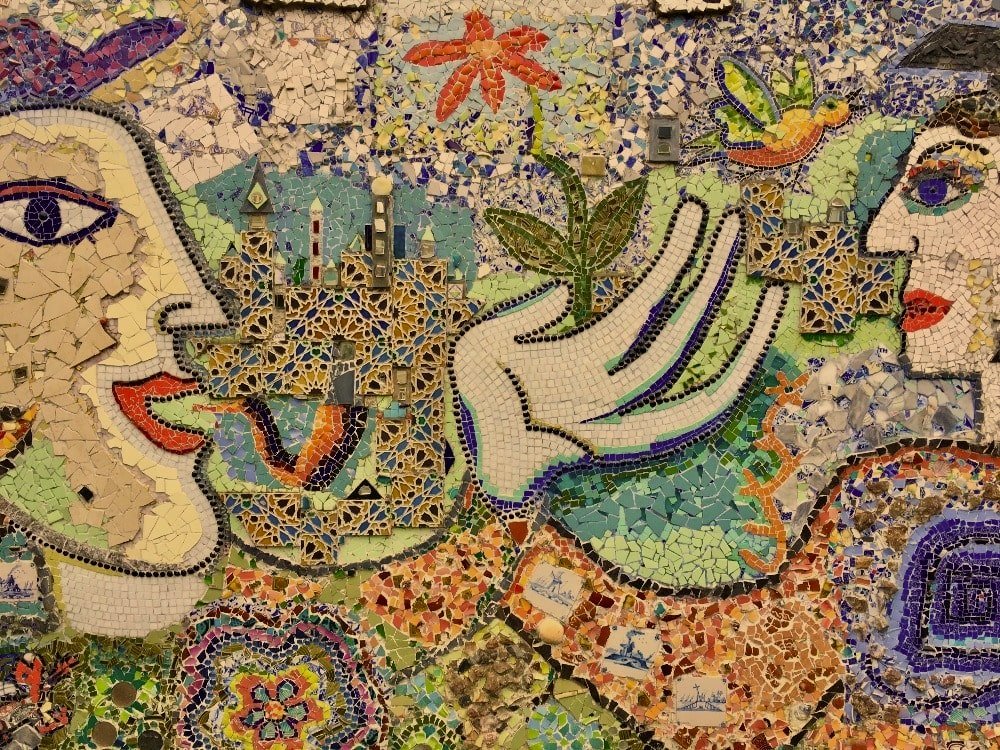Are you struggling in some of your relationships?
Relationships are complicated, messy, and potentially hurtful, and at the same time deep, fulfilling, and meaningful. We are complex creatures and there is no one single way to do relationships "right." This is true for all our relationships - with our parents, siblings, relatives, friends, spouses, lovers, roommates, classmates, coworkers, bosses, and strangers. Relational challenges are present in all types of relationships.
Perhaps you find it very difficult to set boundaries and say “no,” or have a hard time expressing your needs, wants, and wishes. Maybe you feel like a people-pleaser, not knowing what you want from relationships, and feeling very anxious connecting with others. It might be very scary to be vulnerable or difficult to feel loved, You might at the same time want to deepen your relationship and feel afraid of closeness and emotional intimacy. Maybe you feel that the people in your life don’t really know you, and might leave you if they really did.
How can relationship therapy in Chicago help?
Relationship therapy explores your relationship patterns, understands where they’re coming from and how they are present in your relationships today. Relationship therapy is not the same as couples therapy: you can work on your relationships in individual therapy, or jointly with someone else. Therapy can help you understand the meaning behind relationship dynamics, helping you gain awareness, tolerance, and acceptance, improve how you communicate your experience, become able to deepen your relationships, and show up more authentically.
The non-judgmental and trusting relationship with your therapist is essential for this process, as it will creates an opportunity to examine old patterns, regain a sense of safety and trust, and experience new ways of relating to yourself and others. Therapy cannot change the past, but it can help you change your relationship with it and allow you to break old patterns from within.
Relational challenges have many faces
The challenges we find in relationships are very diverse. We can find it difficult to set boundaries, express our needs, engage in confrontation, trust others, be vulnerable, express or receive love. We might feel lonely even when we are not alone, find ourselves easily bored or disenchanted, or depend on others' validation to feel worthy. Often we repeat patterns, sometimes inadvertently, such us trying manage or control others, engaging in toxic relationships, or becoming other people's caretakers.
Many times the thing we want is the thing we fear. We want to be loved, but feel uncomfortable when someone expresses love and care for us. We may long for intimacy and connection, yet at the same time we are anxious or terrified of letting other people in.
Some of these patterns and issues have a developmental origin, and can be traced back to our early relationships and attachments. Our entire personality is partially developed and organized as a result of the experiences we had in early relationships.
Our relational history starts the day we’re born
We come to this world in a very vulnerable state, wired for relationships that we depend on in order to survive. Connecting and feeling connected with others is a biological imperative. We seek attachment and need others not only to ensure our physical survival, but for our emotional and emotional well-being.
One of the most important jobs our parents and caretakers have during our childhood, is helping us make sense of our internal and external world. It is through the way they relate to us that we start understanding our own thoughts and emotions, and learning what we can anticipate from relationships. It is in our earliest relationships that we start developing a sense of what it means to be in relationship.
For example, we may start learning early on to feel we are lovable, deserving, and worthwhile, if our needs are attended to and heard. We learn whether others can be trusted, will accept our feelings, or soothe us when we are in distressed. We can learn to trust that our needs can be expressed and fulfilled, that a close relationship can survive confrontation, or that we can our own person and still be loved.
What can go wrong early on?
Relationships are complicated and challenges and ruptures are bound to occur. What makes a difference is not the absence of conflict, but the presence of repair. The issues we deal with in our adult relationships are usually rooted in our earlier relationships. They played a fundamental role in shaping who we became, in defining our personality, and how we relate to others.
Did you grew up in an environment that respected your boundaries? Were you allowed to have your own feelings and express them even if they were uncomfortable for the adults around you? Did you consistently receive the help you needed to make sense of your own thoughts and emotions? Did you feel seen, heard, accepted, and understood by the people you depended on? Did you feel safe? What did you learn about love, intimacy, and relationships, from what you saw and experienced at home?
For many people, their upbringing experienced was marked by different degrees of neglect or enmeshment, with caregivers who were physically or emotionally absent, or had poor boundaries. These experiences can sometimes be traumatic, especially when they included abuse or neglect. As a result, we may developed an insecure attachment to others, in which we feel either anxious about the stability of our relationships, or dismissive of their importance and of our own feelings.
What can go wrong later on?
Traumatic relationships are not reserved to what happened during our childhood. As adults, experiencing betrayal, disappointment, or heartbreak can also have a deep impact on ourselves and our relationships. Those experiences can make it almost impossible to trust someone else again.
The foundation for our ability to deal with situations in adulthood, is usually developed during our first several years of life. The main challenge we face as adults occurs when we don’t allow ourselves to acknowledge, feel, and process losses, longings, wounds, fears, sadness, and other feelings we may carry deep inside.
We tend to repeat the experiences we haven't really processed or worked through, whether that means mourning a loss, recognizing a wish or a longing, or connecting with feelings of anger or pain. The less aware we are of how our past still lives with us, the more likely we are to repeat patterns and to project those internalized images onto others.
How we relate to ourselves matters
Are we harsh and judgmental of our actions? Do we constantly put ourselves down? Does it feel like even minor things make us doubt of our abilities or self-worth? Do we trust our own feelings and our own abilities? Do we believe that our needs are valid and deserve to be met?
A very important component of how we relate to others, whether they are loved ones, friends, colleagues, or strangers, is how we relate to ourselves. Both relationships -to others and to ourselves- are intrinsically linked to each other.
How can our Chicago relationship therapists help you
The first step in relational therapy involves understanding the nature of your difficulties. Human relationships are always complex. Issues in relationships are rarely the doing of just one person, but understanding our contribution is central. To make things more challenging, we all bring our experience in past relationships to our current ones, sometimes unconsciously.
The relational therapists at Fermata Psychotherapy can help you develop increased awareness and understanding of the meaning of the challenges you experience in relationships, the ways in which old patterns might be present in current relationships, and the expectations, needs, wishes, fears, and conflicts that might interfere with openness and vulnerability.
You might discover ways of communicating needs and expressing emotions that honor who you are. You don’t need to become someone else in order to improve your relationships. This can be a challenging process, that can allow you to have more fulfilling, meaningful, and authentic relationships. Our relationship therapists in Chicago can support you through this journey in person or via telehealth.
book a therapy appointment for relationship issues
Related posts in our blog
Banner photo credit: Danie Franco










